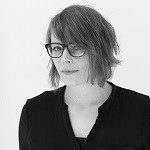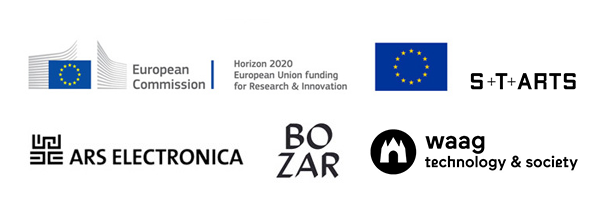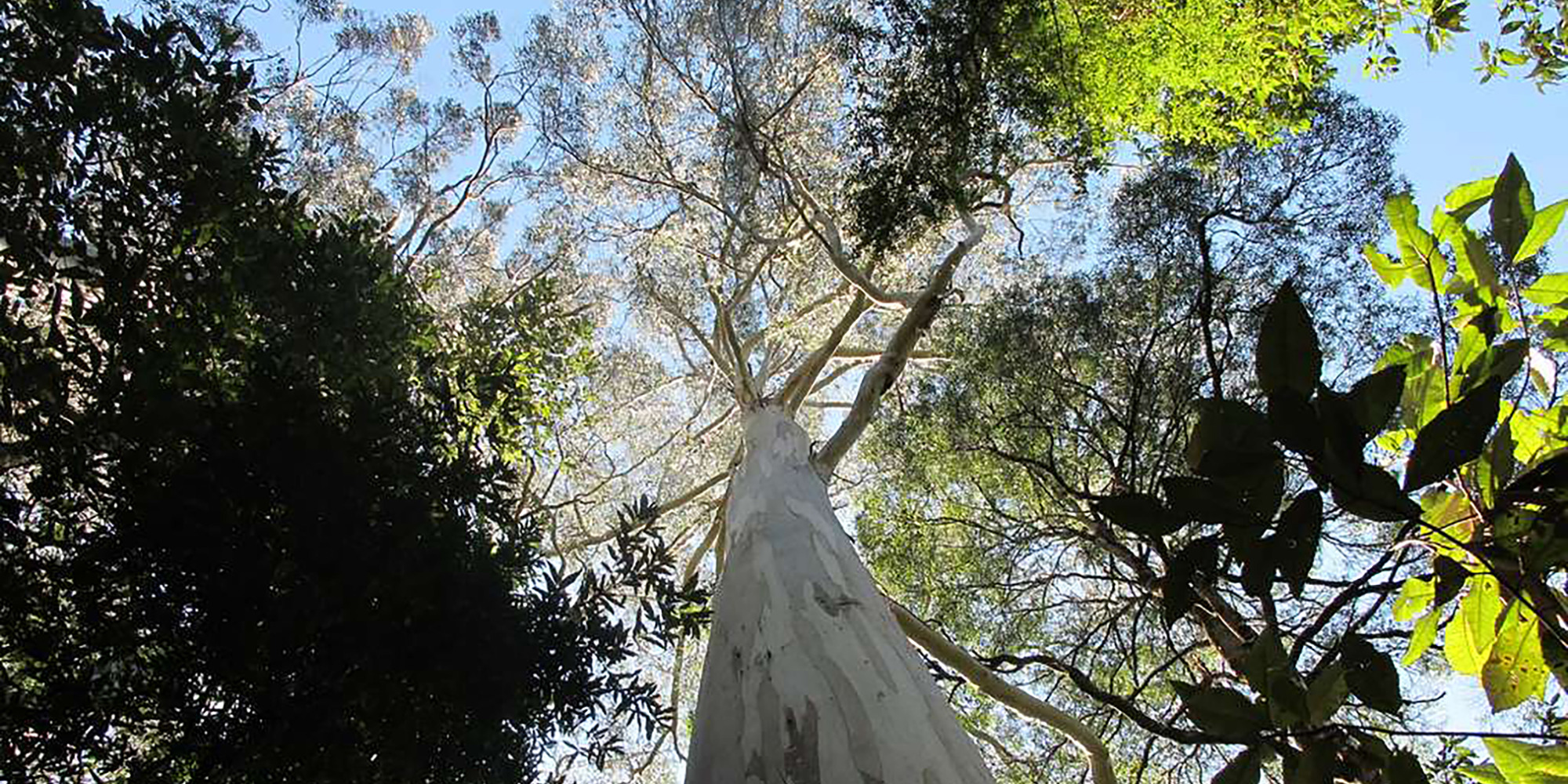The STARTS Prize of the European Commission is a format that carries the future, as it tries to combine the best of the worlds of art, technology and science. Ten works will be shown live in Linz in the Kepler Hall on the JKU campus. Also in front of it and below it and on the way there. In conversation with Karla Spiluttini, project manager of STARTS, we found out for you what there is to see.
In addition to the works in the exhibition, two projects are represented in the Gardens. One is The Wrong, a network founded in 2013 to promote digital art and culture, in which everyone is invited to participate. The Wrong takes place as part of the Gallery Spaces, which this year is taking place exclusively online. The other is Contain, a mobile Covid laboratory in a shipping container that has just received a grant from the British government.
In and around the Kepler Hall, ten projects are looking for interested visitors.
EDEN: EDEN (or in its entirety Ethics – Durability – Ecology – Nature) is the winning project in the Innovative Collaboration category. Since 2012, Olga Kisseleva has been conducting research in a series of bio-art works of art on the protection of endangered plant species and the communication of non-human living beings. The artist brings 22 different plants from Brazil as well as photographs of various sub-works of EDEN.
Design by Decay, Decay by Design: Andrea Ling won the award in the category Artistic Exploration. She brings many organic samples to Linz, which she created during her residency at Gingko Bioworks and through which she wants to design waste in a way that it is transformed from a worthless waste product into a component of new life.
topography digital: The multidisciplinary collective DataPaulette conducts research in the field of textiles and digital technologies. In this project, textiles become sensitive surfaces with special folds and a projection that is triggered by touch.
c o m p u t e r 1 . 0: This textile display pays homage to the pioneers of computer history in a unique combination of hand-woven textile with kinetic surface.
Hybrid Living Materials: Here living and non-living materials are combined to give the resulting product biological and reactive properties. At the festival, this work will be represented by video, as the real work is currently being exhibited at MoMA.
aqua_forensic: Robertina Šebjanič and Gjino Šutić illuminate in this project the residues of human consumption in waters. In the context of a workshop, a Lab-Book is currently being created that will be exhibited as an artifact in Linz.
Plastic Preneur from Doing Circular comes from the haze of Precious Plastic Universe and has specialized in plastic recycling machines that allow small-scale recycling of plastic waste into new products.
Re-Textile 3D:Ganit Goldstein designs textiles in a way that as little waste as possible is produced during their cutting – this is done by means of the Oculus Rift in 3D space. This project is exhibited as part of Re-Fream, a collaborative research group that is rethinking the process of fashion production. Due to the safety regulations of Covid-19, there is a visualization of this project on display, but unfortunately it is not possible to explore the 3D space on your own.
Here is a re-fream blog post!
Perception iO: Karen Palmer created a training situation for law enforcement and one’ s own bias with Perception iO. Escalating situations between police officers and – supposedly – criminals, black or white people, criminals or people with psychological impairments are imitated. The emotions of the participants are recorded via an AI. The immersive experience is a convergence of neuroscience, behavioural psychology, film, AI, facial emotion recognition, eye tracking, bias and social justice.
Sociality: Paolo Cirio is dedicated to the ethics and aesthetics of working with online piracy, data breach, identity theft, privacy, fake news, algorithms and hacking. In Sociality, Cirio collects and evaluates Internet inventions that have been filed with the U.S. Patent Office and then asks the public to label and ban them.
These projects from the STARTS universe can be seen from September 11 in the Kepler Hall on the JKU campus. In conclusion, we asked Karla Spiluttini directly how strong the influence of the global pandemic is, of course, in curating an exhibition.
Has Covid-19 changed anything in the exhibition concept?
Karla Spiluttini: Absolutely! Touch-intensive exhibition works were omitted or “cut” so that they are only used by the Infotrainers. Which of course reduces the experience.
To what extent did Covid-19 influence the decision of the STARTS Prize jury?
Karla Spiluttini: The evaluation took place at a time when the jury members had already been at home for 6 weeks. And it was also a recurring issue in the jury process. Thoughts and values are shifted by such occurrences. What is really important to us? What is it all about in times of crisis? A lot is about sustainability, ecology, recycling management, human connections.
What happens next with the STARTS exhibition?
Karla Spiluttini: Some of the works will travel on to Bozar in Brussels, where the exhibition will be on display afterwards. It is an important step to make art and culture accessible again.

Karla Spiluttini is a media artist and researcher. Her artistic and scientific interests lie in diffuse locations, materials research, narrative spaces and the phenomenology of Maker Cultures. Her installations have been awarded the Salzburg State Prize for Media Art and the Mandala Award of the European Institute for the Media. Among other things, she worked with materials and applied experimentation as the 2012 Research Resident at the V2_ institute for the unstable media in Rotterdam, and as an intermediary at various Austrian universities. She is currently working for the Ars Electronica Festival in Linz.
This project has received funding from the European Union’s Horizon 2020 research and innovation programme under grant agreement No 732019. This publication (communication) reflects the views only of the author, and the European Commission cannot be held responsible for any use which may be made of the information contained therein

